Join a unique herp count in the Phansad Wildlife Sanctuary that aims to plug a big gap in its existing ecological data
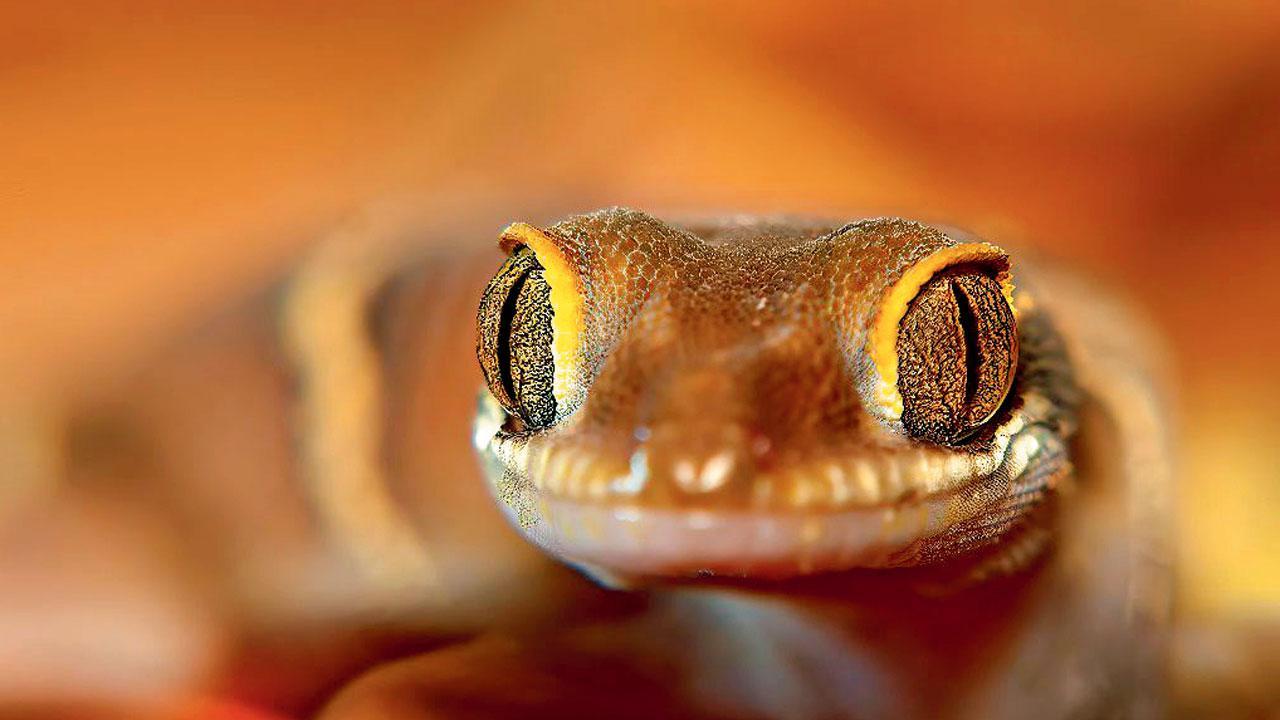
Deccan ground gecko
Are you a beach person or a forest person? Truth be told, it hardly matters when you’re in Phansad, a treasure trove of flora, fauna, and picture-perfect green landscapes hidden in plain sight along the coastline of Murud in Raigad district. “It’s Maharashtra’s only wildlife sanctuary that can boast of both an evergreen forest, and a coastline. You can imagine the diversity it lends to the wildlife in the area,” reveals Nikhil Bhopale, founder, Green Works Trust. As Bhopale gears for the sanctuary’s first ever herp (amphibians and reptiles) count in collaboration with the Maharashtra Forest Department and SBI Foundation, we get a peek into what one can expect.
ADVERTISEMENT
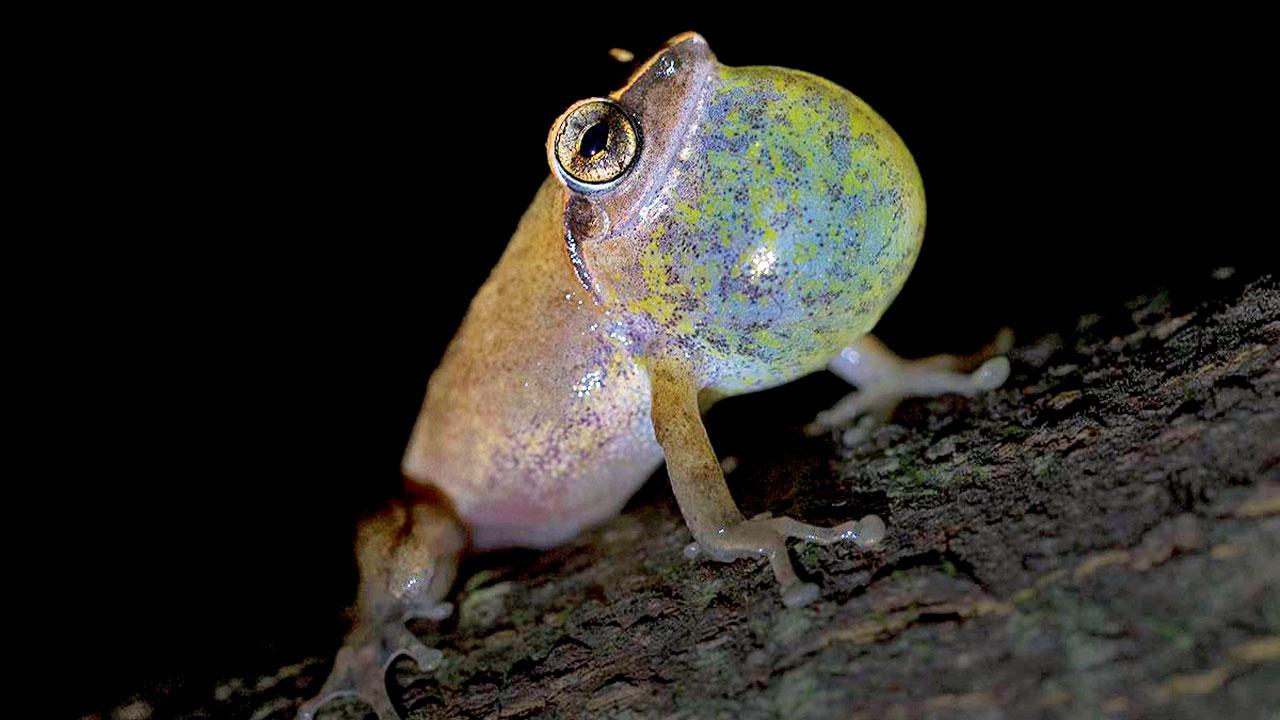
Amboli bush frog
“Murud hosts lakhs of tourists a year. The wildlife sanctuary, however, doesn’t make it to most of these itineraries. Even if it did, the sanctuary might not be equipped to educate them,” admits Bhopale, who has worked as a conservationist in the area for over two decades. The first bird count, for instance, was conducted as late as 2021. “The bird counts filled a part of the knowledge gap that existed. However, during monsoons, we are left with no choice but to halt operations. That’s when we thought of a herp count,” he recalls.
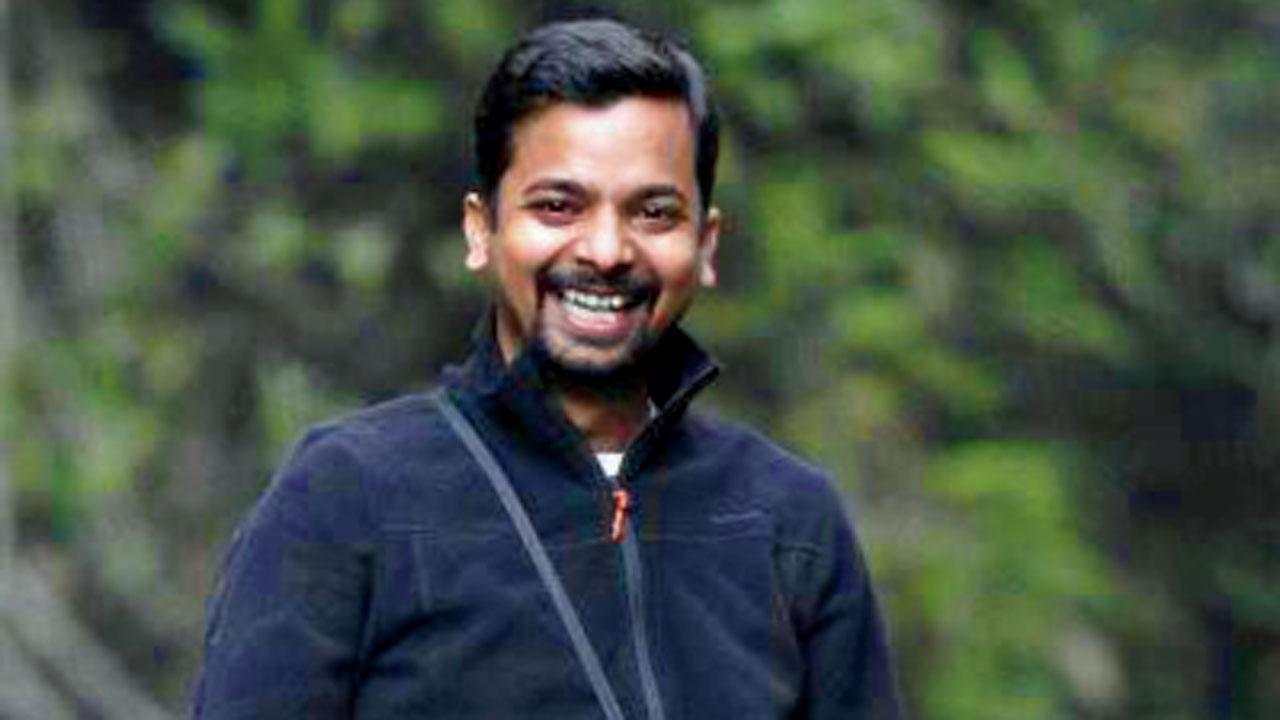
Nikhil Bhopale
The upcoming count will witness more than 150 citizens walk along predetermined paths to log their observations. “We divide the total area of the forest into hectares and set out in groups. Once the data comes in, we get a fair idea of the density of herp population,” he explains. While you don’t have to be a seasoned zoologist to tag along, Bhopale recommends some basic knowledge of herps and trekking as a prerequisite to joining the team that will cover 25 km while camping in tents and dormitories in the neighbouring Supegaon.
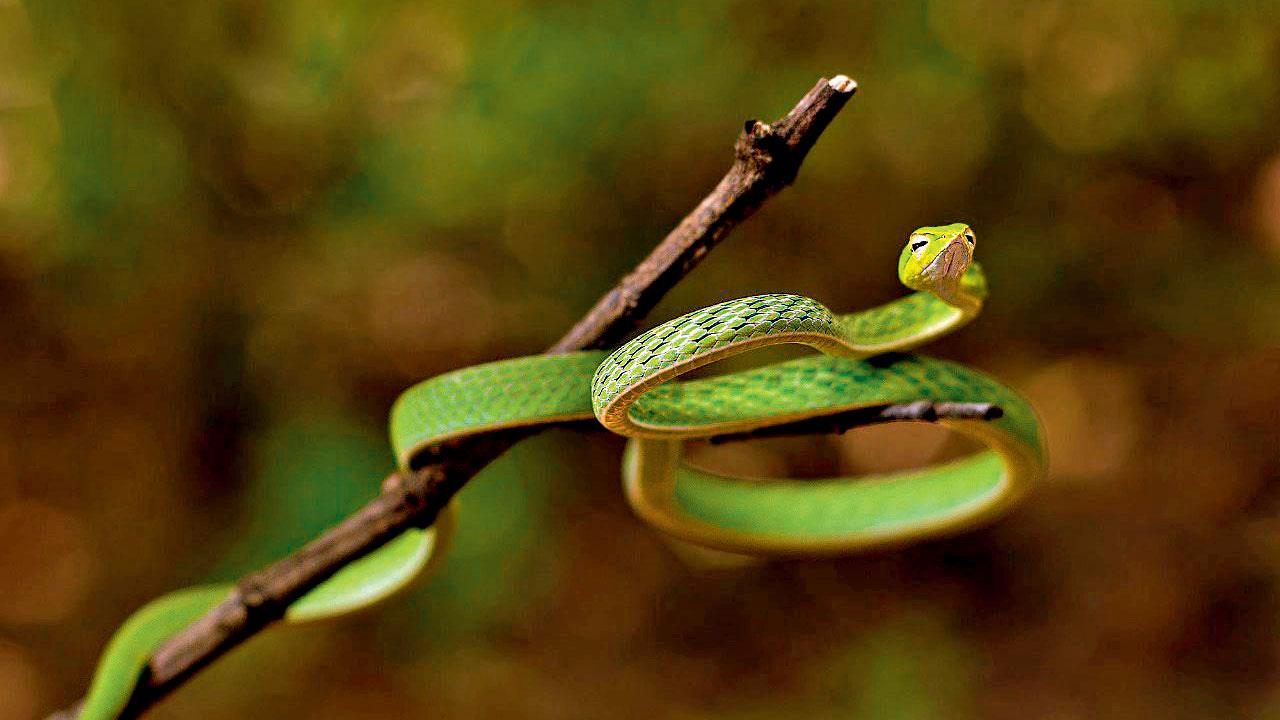
Northern Western Ghats vine snake. PICS COURTESY/KUNAL SALUNKHE
We learn that the reptiles that one can expect to spot during the count include the Deccan ground gecko, Northern Western Ghats vine snake and the common sand boa. “The unique topology of the sanctuary is marked by its lateritic plateaus. These plateaus act as optimal microhabitats for amphibians,” he reveals. Some common amphibian sightings include species such as the skittering frog and the Amboli bush frog.
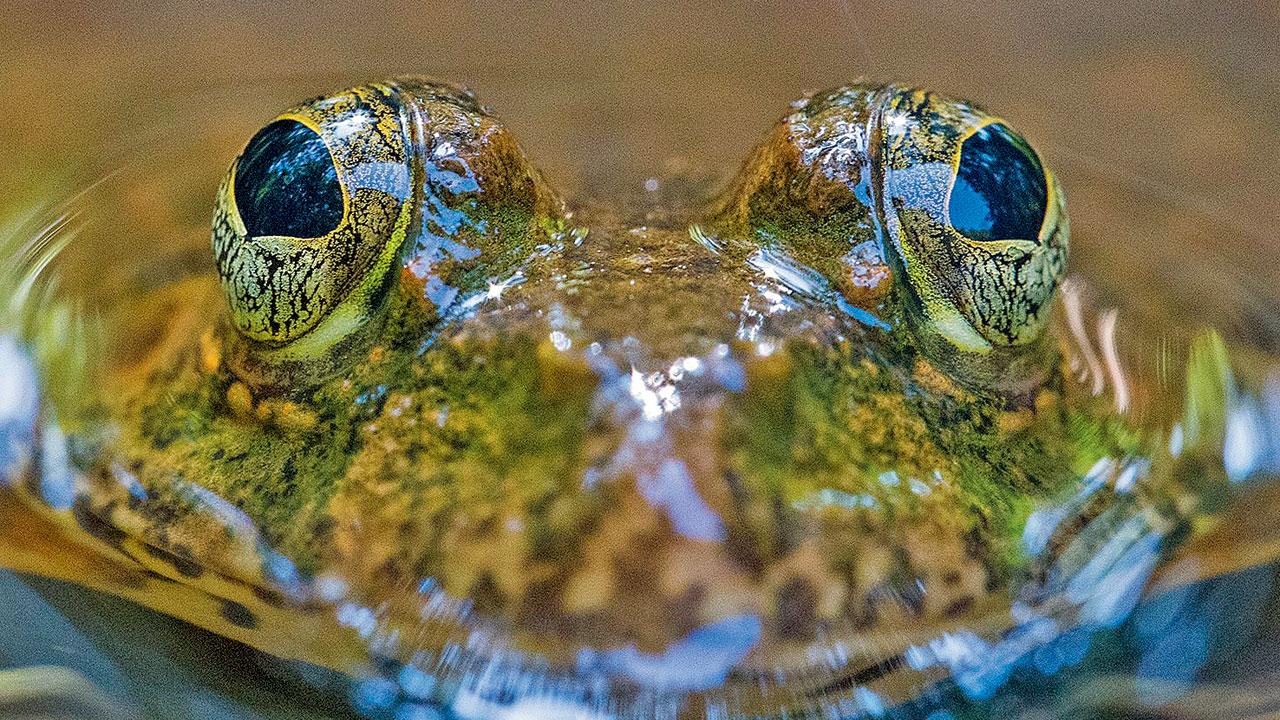
Skittering frog. PICS COURTESY/Pranav Bagwe; Nikhil Bhopale
While the founder’s journey began with birds, and eventually led him to herps, when nature strikes, things are quite the opposite. “Herps are extremely vulnerable to environmental change; their populations are the first to take a hit. The birds bear the brunt next,” he reveals.
To that end, the count will also assist the Maharashtra Forest Department frame its official wildlife management plan. “The gap in data has not only hampered tourism but also conservation plans. For instance, a visitor might consider repeated sightings of a species as a green flag, but a zoologist at the department will recognise this as a possibility that another species in the habitat might be compromised,” he elaborates.
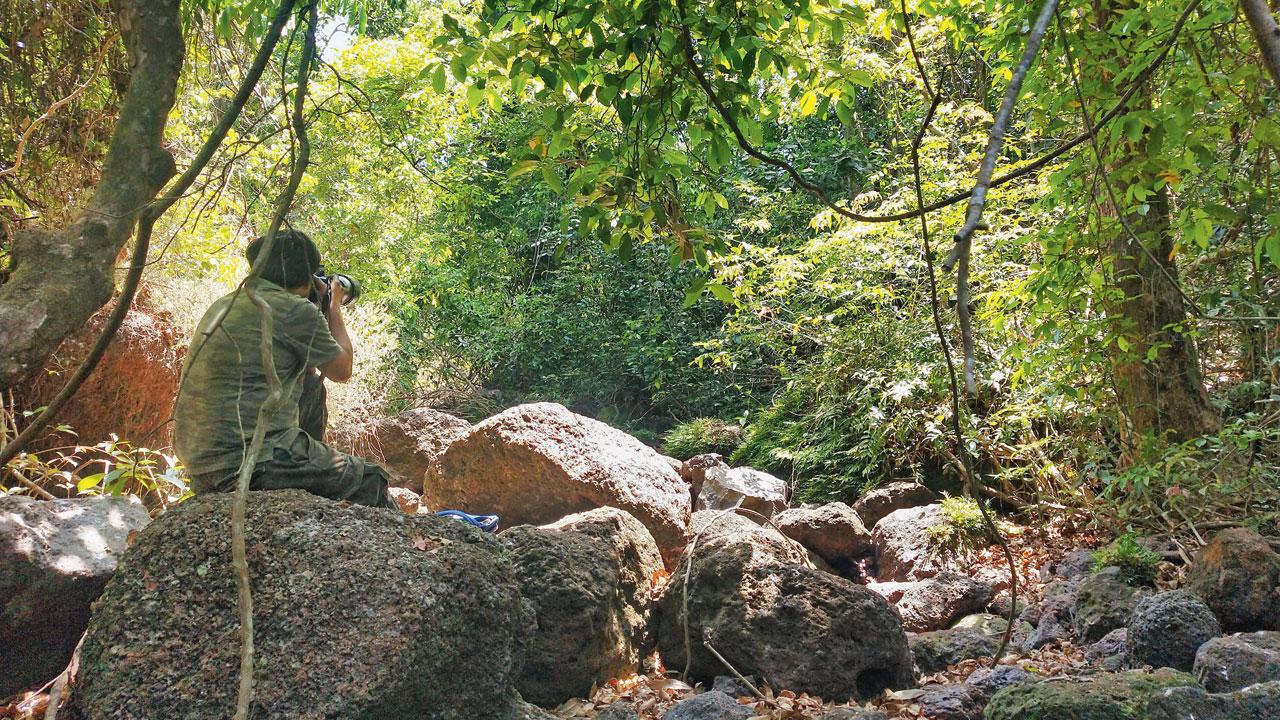
View from inside the sanctuary
With the spotlight understandably on the novel initiative, we learn that a lot more is simmering under the thick green cover at Phansad. Bhopale’s trust is working on a multi-pronged approach to put the region on the map. “Education is our first priority. We are reaching out to schools in Phansad to empower children belonging to the Katkari tribe with supplementary education about their natural heritage. It is only through educating the new generation that we can hope for sustainable growth in Phansad,” he concludes.
ON June 21 to 23
AGE GROUP 16 to 60 years
Meeting point Phansad Wildlife Sanctuary, Raigad. (details shared on registration)
LOG ON TO @greenworkstrust (for all queries)
ENTRY Rs 100
Finding Phansad
>> Opened to the public in 1995, Phansad Wildlife Sanctuary spans nearly 69 sq km including extended areas.
>> Unofficial records suggest that the sanctuary is home to nearly 20 amphibian and 37 snake species.
>> The sanctuary encompasses diverse terrain such as vast grasslands, thick forests, and wetlands.
How to reach
>> Train: The nearest railway station is Roha. Taxis are available for the 30-km ride from Roha to Phansad.
>> Road: State Transport buses ply from Mumbai to Alibaug, the nearest town. Hail an auto rickshaw or taxi for the 50-km trip from Alibaug to Phansad.
 Subscribe today by clicking the link and stay updated with the latest news!" Click here!
Subscribe today by clicking the link and stay updated with the latest news!" Click here!












